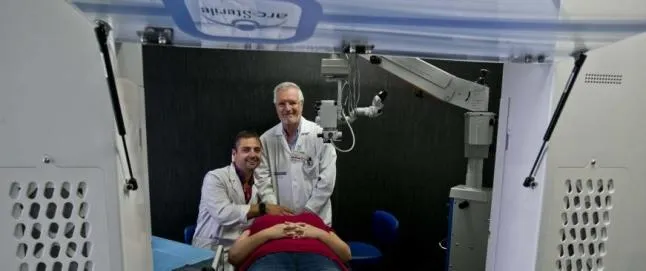Specialists from the ophthalmology service of Elche General Hospital have patented a new medicine to treat diabetic retinopathy, a disease that is the main cause of legal blindness in people less than 50 years in developed countries and one of the main causes ofBlindness worldwide.
The treatment could have more benefits, less adverse effects and a lower cost than those now in the market.
The new medicine, which has already aroused interest in the pharmaceutical industry, is the result of an original and unique research project, born in the Ilicitan public hospital and in which the Foundation for the Promotion of Health and Biomedical Research of theValencian Community (Fisabio) and the University of Castilla La Mancha.
Specifically, the medicine has been developed by the ophthalmologist Cristian Fernández Martínez, head of the Ophthalmology Service, José Juan Martínez Toldos, together with the Professor of Ophthalmology at the University of Castilla La Mancha and President of the Spanish Society of Retina y Vitreo, JoséMaría Ruiz Moreno.
Dr. Fernández explained that "at the end of May, the industrial patent arising from a study that has been carried out in animals and has yielded positive results in the treatment of this serious eye disease."
According to experts, the new patented drug would be administered directly in the vitreous humor of patients and could have a better benefit profile, lower adverse effects and a lower cost than existing drugs now.
For his part, Dr. Martínez Toldos explained that “so far there are three biological drugs, but none modifies the evolutionary course of the pathology or act on the blood vessels and sick.Therefore, they all have comparable effects, high costs and the same imitations ».Another indicated therapeutic option is intravitreous steroids, which have as inconvenient the high rate of side effects that induce, especially the increase in intraocular pressure and cataracts.
With this, researchers hope that an agreement with pharmaceutical companies, which have already shown their interest to implement clinical trials and their use in humans, can crystallize shortly.


